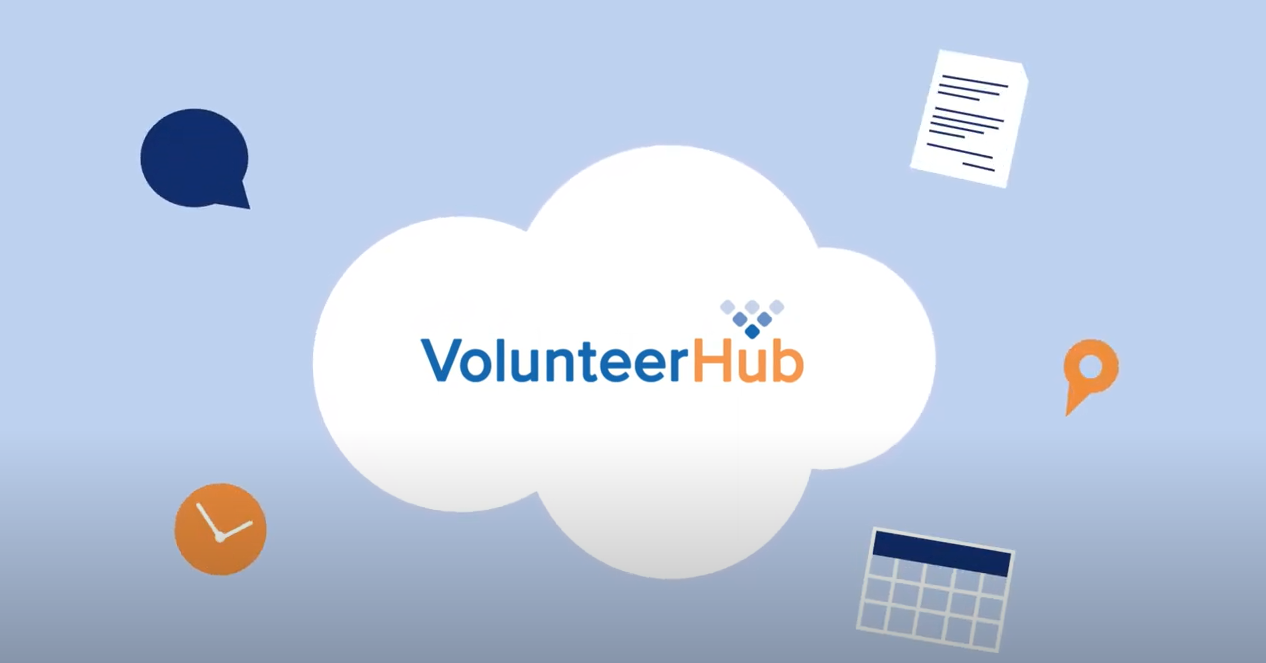The Hidden Costs of Volunteer Mismanagement—and How to Reduce Them

Volunteers are among the most crucial assets for your nonprofit. However, without proper systems, even the most enthusiastic volunteer programs can subtly drain your resources, time, and effectiveness. Issues like unfilled roles and administrative burdens often go unnoticed until they become significant problems. The consequences? Overworked staff, diminished donations, missed grant opportunities, and a weakened ability to achieve your mission. The silver lining: By spotting the warning signs early and adopting smarter strategies, you can change direction and fully harness the potential of your volunteer program.
The True Cost of Volunteer Mismanagement
When volunteer programs are not managed efficiently, the repercussions extend well beyond the volunteer team itself. Each hour contributed by a volunteer is valued at approximately $33.49. However, without effective management, organizations frequently fail to capitalize on this value, incurring additional costs as a result. Here are some of the hidden expenses:
- High turnover and retraining costs
- Decreased volunteer productivity
- Staff burnout
- Damaged reputation
- Lost fundraising opportunities
- Program delays or failures
- Compliance or legal issues
- Missed data collection
- Increased administrative burden
- Missed partnership opportunities
Warning Signs of Volunteer Mismanagement
Volunteer mismanagement often doesn't announce itself with a loud crash. Instead, it sneaks in gradually, hidden amidst the everyday hustle. Be alert for these warning signs:
- Last-minute chaos before events
- High volunteer turnover or lack of engagement
- Challenges in filling volunteer roles
- Outdated or missing contact information
- Breakdowns in volunteer communication
- Disconnected tools and systems
- Volunteers not matched to their skills
- Ineffective tracking and reporting methods
- Inefficient onboarding experiences for volunteers
- Exhausted volunteer coordinators
How to Overcome Volunteer Mismanagement
Building an effective volunteer management strategy begins with understanding the unique needs and motivations of your volunteers. By creating a welcoming environment that values their contributions, you can foster a sense of belonging and purpose. Start by clearly defining roles and responsibilities, ensuring that each volunteer is matched to tasks that align with their skills and interests. Regular training and development opportunities not only enhance their capabilities but also demonstrate your commitment to their growth. Additionally, maintaining open lines of communication is crucial; it helps in addressing concerns promptly and keeps everyone aligned with the organization's mission. By integrating these elements into your strategy, you can cultivate a thriving volunteer program that not only meets organizational goals but also enriches the volunteer experience.
Effective volunteer management is multi-faceted, so let’s explore the different ways that you can incorporate more efficient approaches into your day-to-day volunteer management tasks.
Volunteer Scheduling
Coordinating volunteer schedules is a crucial responsibility for a volunteer manager. Ensuring that the right volunteers are in the right place at the right time is essential. Failing to do so can risk the success of events, affect donations, and impact the experiences of those you serve. Additionally, if volunteers find it difficult to align shifts with their personal schedules, they may become disengaged and eventually leave your organization.
If you're still using pen and paper for scheduling, it's time to modernize. Consider a software solution that provides advanced scheduling features, such as:
- Self-scheduling
- Recurring opportunities
- Self-check-in
- Hour tracking
- Shift reminders
- Customizable forms and landing pages
By streamlining the scheduling process, you can more effectively deploy your volunteers and enhance their overall experience.
Program and Event Management
Managing your volunteers extends beyond scheduling; it also includes supervising them when they are on the job and organizing the logistics surrounding your organization’s events and programs. Event management is as complex as volunteer management, and inefficient processes can easily consume excess resources.
Stay on top of your event and program management to:
- Avoid last-minute emergencies
- Ensure events proceed smoothly
- Fill all necessary volunteer positions
- Match volunteers with the correct roles
- Provide on-the-job supervision
- Improve the volunteer, beneficiary, and donor experience
- Maximize return on investment
Look for volunteer management software with advanced event management options, like a multi-event editor, to improve your event management efficiency and prevent costly mistakes.
Communication
Clear communication is absolutely critical at every stage of the volunteer lifecycle. When you have consistent communication with your volunteer base, it is easier to attract potential recruits, guide new volunteers through onboarding and training, fill volunteer positions, and encourage volunteer fundraising.
There are more communication methods available than ever before, so an effective volunteer management strategy should balance consistent communication with targeted messages that hold meaning for each individual volunteer.
Consider the various communication channels available to you and their best use cases:
- Social media. Social media is an effective recruitment tool, and it is also great for impact sharing and engaging volunteers through social media spotlights.
- Emails are great ways to convey complex messages and create a clear call to action. Use email to thank your volunteers, share newsletters, distribute surveys, and promote fundraising campaigns.
- Text messages. Text messages are ideal for short, time-sensitive messages, i.e., venue changes, updates on weather conditions, or shift reminders.
- Phone calls. A phone call can be the right communication method if you need an immediate answer or if you need to discuss a topic that may be difficult to convey via writing.
- In-person. In-person communication allows you to connect directly with your volunteers and make full use of both verbal and nonverbal signals. However, in-person communication can also be time-consuming, so it is best reserved for critical moments—like training, performance evaluations, or exit interviews—or incorporated naturally during events.
Since it is so critical that you maintain open lines of communication without overwhelming your volunteers—or taking up too much of your staff’s time. That’s where automated communication features can help. Look for a software solution that can send messages to the correct volunteer segments, automatically.
Volunteer Database
Your volunteer database should be the center of all your volunteer management operations—and if you have been relying on manual methods for managing volunteers, like spreadsheets, or a software solution that doesn’t meet your organizations unique needs, you may be wasting valuable time, money, and energy.
When you effectively leverage your volunteer database, you are able to:
- Securely store contact information and personal data
- Assign roles to volunteers that match their skills and preferences
- Quickly fill open positions
- Track volunteer activity
- Tailor volunteer communications to the correct segment
- Collect volunteer impact data
- Run reports with actionable insights
It is critical that your database has all the information you need and that everything is up-to-date. However, finding and resolving errors can take hours, so you’re left with a dilemma: do you spend your limited resources maintaining the database, or do you simply pray that you don’t run into a costly problem due to incorrect data?
Volunteer management software presents an effective solution. Instead of manually maintaining the database, software can help you:
- Identify and resolve errors
- Customize groups and data categories
- Deduplicate
- Keep volunteer information up-to-date
- Generate meaningful reports
When you utilize volunteer management software to maintain your database, you can dramatically improve efficiency, accuracy, and the reliability of your data.
Volunteer Program Optimization
Optimizing your volunteer program is key to building a more efficient and cost-effective volunteer management strategy. If you don’t regularly evaluate your program, you may wind up wasting resources on redundancies, bottlenecks, and poor volunteer experiences.
Metrics like volunteer participation, volunteer behavior, and volunteer satisfaction are key to optimizing your program. But how do you collect this data? You will need a multi-pronged approach, including:
- Maintaining your volunteer database
- Implementing automated hour tracking
- Conducting volunteer satisfaction and engagement surveys
- Performing exit interviews to find out why volunteers turn over
Then, you have to analyze all this data to turn it into actionable insights. If you don’t have a background in statistics, this step can be intimidating. However, if you incorporate a strong analytical strategy, you can easily turn data points into meaningful change for your program.
Consider:
- Using volunteer management software to run analytics and generate reports.
- Quantifying as many data points with numbers as possible.
- Organizing your data into easy-to-understand visuals.
- Looking for relationships between different data sets.
- Paying attention to recurring issues.
Armed with these powerful, data-driven insights, there is nothing your volunteer program can’t achieve!
Impact Sharing
Collecting volunteer data isn’t just about uncovering the areas where your program could improve; it is also about celebrating the ways you are successful. Impact sharing is key to attracting new recruits, engaging and retaining your established volunteers, building community partnerships, boosting fundraising efforts, and winning grant funding.
Most people want to know that their work will have an impact, and they will be more likely to invest their time and money in your organization if it has a proven track record. Build impact sharing narratives that balance emotionally compelling case studies and success stories with persuasive data. When you are able to articulate how your volunteer program makes a positive impact, you raise your reputation with both internal and external audiences.
Volunteer Recognition Systems
Recognition is key to keeping volunteers engaged and preventing turnover. Your experienced volunteers are a valuable asset. Acknowledging their hard work can help your organization get maximum value out of volunteer hours, and it can also boost your volunteer fundraising efforts.
Implement a variety of recognition methods, such as:
- Informal praise
- Thank you notes
- Social media shout-outs
- Awards
- Volunteer appreciation events
- Professional development workshops
- Points-based rewards systems
- Leadership roles
Everyone desires recognition, and by expressing your gratitude more frequently, you'll enhance retention rates—ultimately saving on the costs associated with recruiting, onboarding, and training new volunteers to replace those who have left.
Better Manage Volunteers with VolunteerHub
Volunteer mismanagement can be detrimental your organization; however, you can eliminate hidden costs and build more efficient systems with help from the premiere volunteer management software solution: VolunteerHub.
For over two decades, VolunteerHub has been helping nonprofits like yours expand their reach and achieve their volunteer management goals—while also reducing expenses and optimizing their operations. We have a comprehensive suite of features designed specifically for mid-sized to large volunteer program, like self-scheduling, automated communication, waiver creation and tracking, landing pages, and analytics, to give you a single solution to your volunteer program needs.
With VolunteerHub, your organization can:
- Streamline your day-to-day operations
- Eliminate redundancies and bottlenecks
- Save time, money, and energy
- Free up paid staff members for higher-level tasks
- Easily fill open volunteer positions
- Collect, analyze, and share meaningful volunteer impact data
- Enhance the volunteer, donor, and beneficiary experience
- Reduce volunteer turnover
But don’t take it from us! VolunteerHub has helped thousands of organizations manage billions of volunteer hours, and we have a wide variety of case studies showcasing how our volunteer management software makes an impact.
Matthew Herrera from West Houston Assistance Ministries raves, “By implementing VolunteerHub, I save 10-15 hours per week, we have substantially increased the number of active volunteers in our database, we have increased our number of corporate partners, and through new donors, impacted by the software ease-of-use, we have paid for 3 years of VolunteerHub with 9 months. The ROI is huge.”




